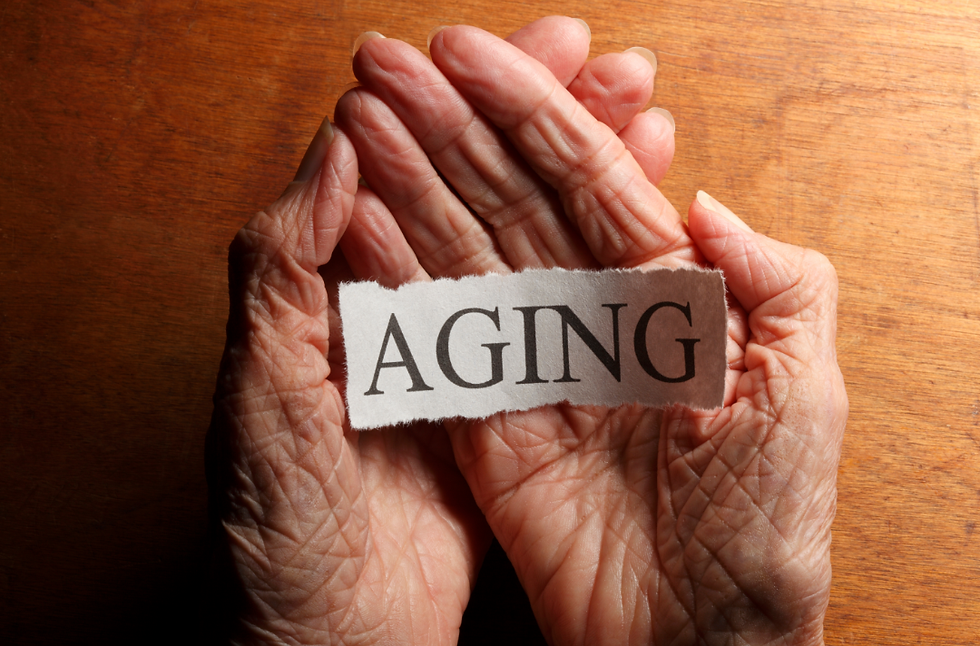The Role of Physiotherapy in Helping Patients with HIV
- Harshita Suthar

- Jul 28, 2024
- 3 min read
Have you heard about the recent outburst of HIV infection in students of Tripura?
Tripura is dealing with the devastating HIV outbreak among its student population that is caused due to injectable drug use. So, let's dive in to learn about HIV infection and how physiotherapy can help HIV patients improve their quality of life.

What is HIV infection?
HIV (Human Immunodeficiency Virus) is a serious virus that attacks the infected person's immune system. It makes our body more susceptible to opportunistic infections and makes it harder for our body to fight off infections and diseases.
Modes of transmission: -
HIV is primarily spread through certain bodyfluids. Here are the main modes by which it can be transmitted:
Unprotected Sexual Contact: HIV can be transmitted through vaginal, anal, or oral sex without the use of condoms or other protective measures.
Contaminated or Infected Blood Transfusions: Receiving contaminated blood or blood products can transmit HIV.
Sharing Needles: Using needles or syringes contaminated with HIV-infected blood, often seen in drug use, can spread the virus.
Occupational Exposure: Healthcare workers can be at risk of HIV through accidental needle sticks or contact with infected blood.
Diseases associated with HIV infection:-

Acquired ImmunoDeficiency Syndrome (AIDS): HIV, if left untreated, can lead to AIDS (Acquired Immunodeficiency Syndrome), the final and most severe stage of HIV infection. AIDS is a progressive disease that suppresses the immune system of an infected person.
Opportunistic Infections - Tuberculosis (TB), Pneumonia, Candidiasis etc.
Cancers - Such as Lymphomas
Neurological Complications - Such as HIV-Associated Neurocognitive Disorders (HAND), Peripheral Neuropathy etc.
Wasting Syndromes - Pain, Muscle wasting, weight loss, muscle weakness.
Cardiovascular Diseases
How can physiotherapy help?
While there is no cure for HIV, Antiretroviral Therapy (ART) can help to control the virus and prevent complications. Alongside medications, physiotherapy can significantly enhance the quality of life for those living with HIV, such as
Improving Strength and Mobility: HIV can cause muscle weakness and joint pain. Physiotherapy helps by creating exercise programs that build strength, improve flexibility, and increase overall mobility. Regular exercise can combat muscle wasting and keep the body functioning well.
Managing Pain: People with HIV often experience pain, mainly due to conditions like peripheral neuropathy, which affects the nerves. Physiotherapists use massage, TENS(Transcutaneous Electrical Nerve Stimulation, a form of electrical stimulation), and hot/cold therapy to reduce pain and discomfort.
Improving Heart Health: Cardiovascular issues are more common in people with HIV. Physiotherapists design aerobic exercise routines, like walking, cycling, or swimming, which help keep the heart and lungs healthy. This type of exercise also helps manage weight and improves overall energy levels.
Enhancing Mental Well-being: Exercise is known to improve mood and reduce symptoms of depression and anxiety. For people with HIV, regular physical activity can provide a sense of normalcy and control. Group exercise sessions can also offer social support, reducing feelings of isolation.
Teaching Self-Management: Physiotherapists educate patients about exercises they can do at home, proper posture, and ways to manage fatigue. This helps an individual to take charge of their health and maintain their fitness independently.

So, understanding how HIV is transmitted and the diseases it can cause is essential for both prevention and management. Early detection and treatment with antiretroviral therapy (ART) can help control the virus, prevent complications, and allow people living with HIV to lead healthier lives. Regular medical care and supportive therapies, such as physiotherapy, can further improve the quality of life for those affected by HIV.
Physiotherapy is a valuable tool for managing. It helps improve physical strength, reduces pain, boosts heart health, and enhances mental well-being. By incorporating physiotherapy into their routine, people living with HIV can lead more active, fulfilling lives.
Feel free to ask questions in the comment section; we will try our best to answer them. Kindly comment on how this was helpful; this will encourage our team to build more such blogs.



I was diagnosed with Idiopathic Pulmonary Fibrosis (IPF) four years ago. For over two years, I relied on prescription medications and therapies, but unfortunately, the symptoms continued to worsen. My breathing became more labored, and I experienced increasing fatigue and shortness of breath with even minimal activity.Last year, out of desperation and hope, I decided to try an herbal treatment program from NaturePath Herbal Clinic.Honestly, I was skeptical at first, but within a few months of starting the treatment, I began to notice real changes. My breathing became easier, the tightness in my chest eased, and I felt more energetic and capable in my daily life. Incredibly, I also regained much of my stamina and confidence. It’s been a life-changing…